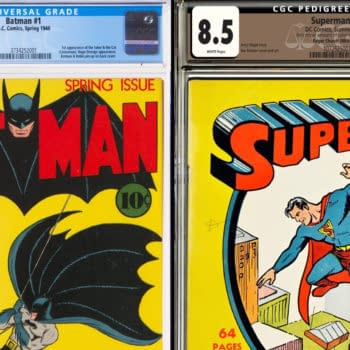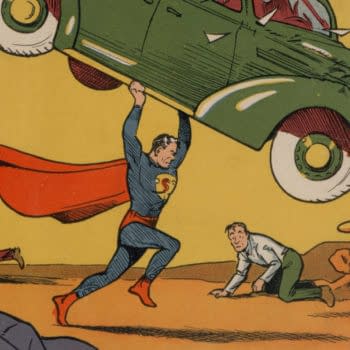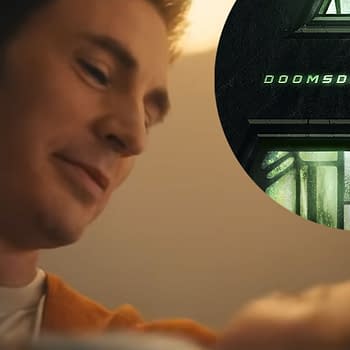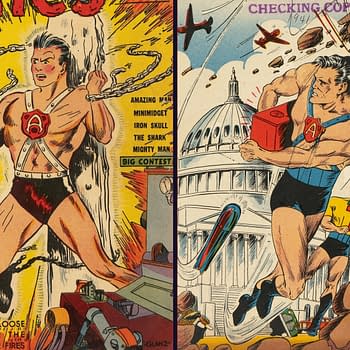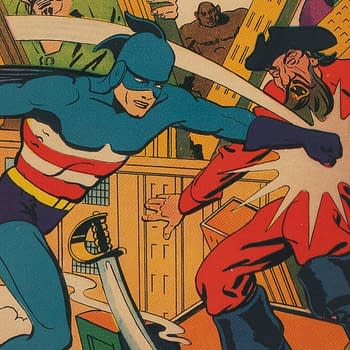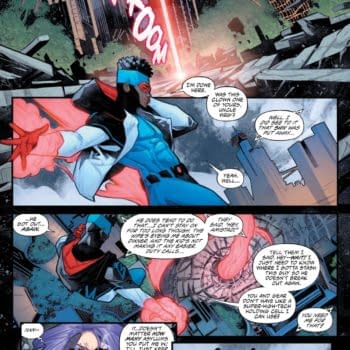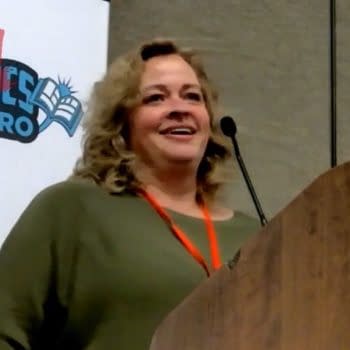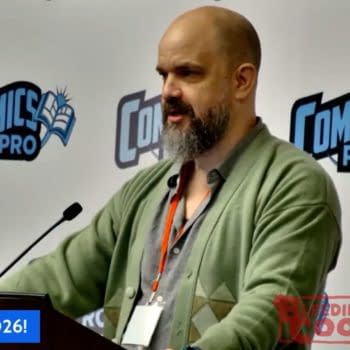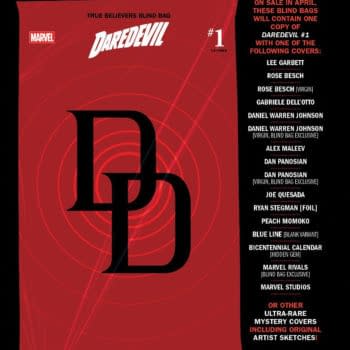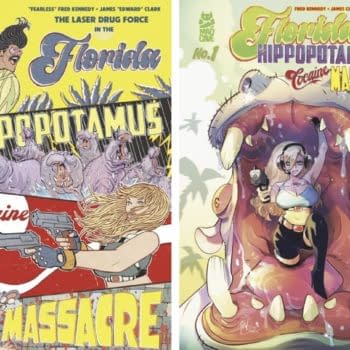Posted in: Comics, Comics History | Tagged: captain marvel, dc comics, dc v bruns, superman, victor fox, will eisner, Wonder Man
Victor Fox, DC Comics and the Comics History Find Of the Decade
In 2010, historian and researcher Ken Quattro posted scans from what has subsequently become one of the most important comics history documents to ever be widely available to the public. It is formally titled Detective Comics, Inc. Against Bruns Publications, Inc., Kable News Company, and Interborough News Co. It is a transcript of testimony from the copyright infringement lawsuit brought by DC Comics against publisher Victor Fox in March 1939. I usually shorten this to DC v. Bruns when I talk about it. It is more popularly known as the Wonder Man lawsuit.
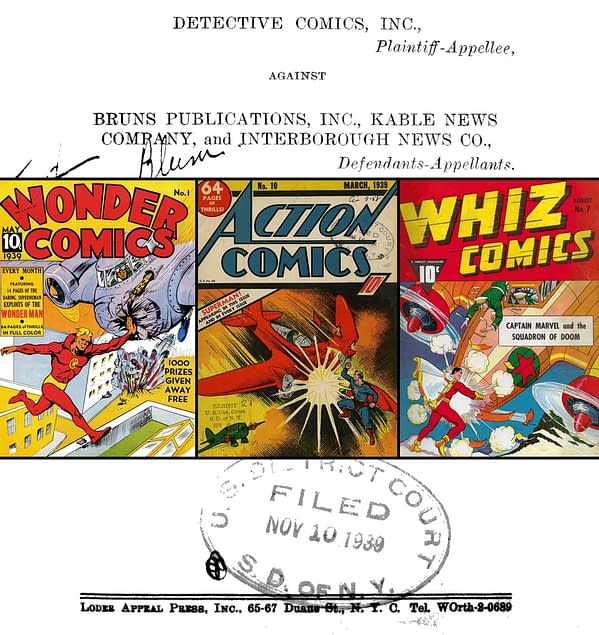
The contents of the transcript were considered controversial due to the fact that the record of Will Eisner's testimony contradicts his later accounts of that moment. This has been widely discussed over the years, but for me, DC v. Bruns is so much more than that. It is a treasure trove of information about the inner workings of the comic book business at that time. Timelines, distribution methods, newsstand returns procedures, print run numbers, payments, deals with creators…all right there in black and white, and testified to under oath. Which might not make it all completely true, so help me god — in fact, there are some fibs in there, I believe — but beyond having been there at that time and somehow recorded it all myself in copious detail, it's as close as I'm going to get to the truth of some of these matters. I've used this document as a starting point for dozens of avenues of research.
I've long been curious about the fact that the individual who sent this transcript to Quattro preferred to remain anonymous. It's a public document that could have been discovered by any researcher, after all. But it turns out that it wasn't unearthed by just any researcher. It was unearthed by a Warner Bros. attorney researching Captain Marvel at the NYC National Archives. He discovered this transcript during the course of that research (for clarity, I should note that this transcript does not reference Captain Marvel, as the testimony took place months prior to the debut of Whiz Comics).
Quattro notes in commentary, which I've excerpted below (with permission), that this attorney gave him the go-ahead to attach his name to the matter at this time: "Over time, his situation has changed and finally, after seven years, I can happily let you know that my benefactor is Wayne Smith." Quattro elaborates:
Wayne is a long-time comics fan and historian, a University of Michigan grad (Go Blue!) and a corporate lawyer for Warner Bros. It was his occupation that made his sending me the transcript a delicate situation as he was working on a project which was, at that time, confidential. Wayne had been doing research into "Captain Marvel" at the National Archives in New York City when he came across these DC v. Bruns (Fox) transcript.
Captain Marvel-related legal research — which was then confidential, but apparently isn't now — is more than a little interesting. Clearing the path to Marvel Family use in the DCEU, perhaps? That's pure speculation on my part, and it certainly could be any number of other things. That situation is far more complex than people realize, I think. The involvement of publisher Myron Fass and legendary Human Torch creator Carl Burgos in the Captain Marvel rights situation is usually forgotten now, for example.
I asked Quattro to confirm that Smith's role here can be made more widely known. He assured me that Smith has cleared making this public, and noted that Smith deserves the credit for helping to make this important public document available to researchers. I certainly agree. My hat is off to both Ken Quattro, who is one of the best comic historians doing research today, and to Wayne Smith, a big comic book fan who has done something very important in the quest for bringing more clarity and detail to our understanding of comic book industry history. Gentlemen, I salute you both.
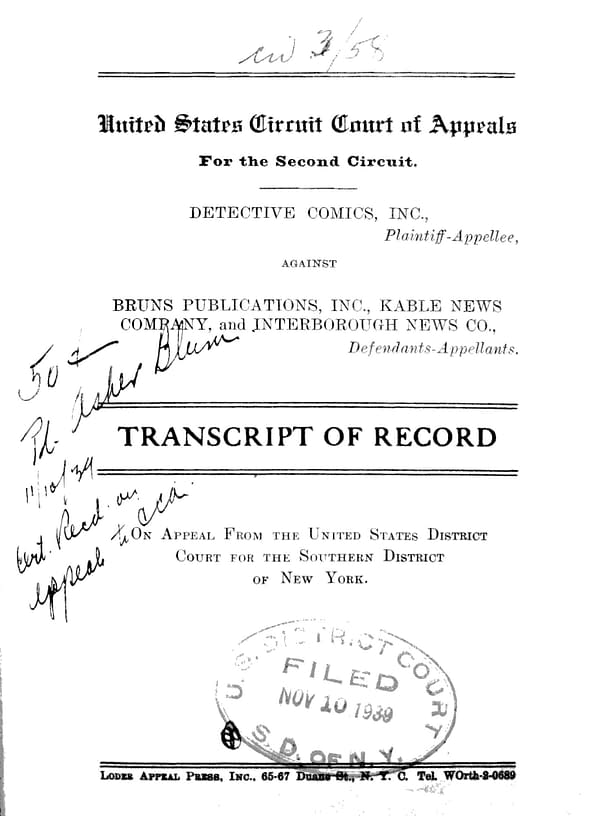
Selected commentary from Quattro's revelation of this matter is below. You can find his full explanation of it all in the Comic Book Historians Facebook group.
This trial fascinated me. Not only was this a historic copyright case, but the participants were all legendary comic personalities. Besides Fox and Eisner, you had his partner Jerry Iger and who knew how many others. Furthermore, Eisner had referred to his testimony in this case numerous times in interviews.
I resolved myself to never seeing this transcript. So what appeared in my article was the best information I had; the only information available, mostly coming from Eisner himself.
Until June 10, 2010, when I received an email from an unknown correspondent. The subject line simply read: "Eisner-Wonderman."
"I read with interest your article regarding Eisner, and particularly with regard to his creation of Wonderman and testimony in the Bruns trial," began the email, "I recently pulled the trial transcript from the National Archive and have to say that I was fairly shocked when I read Eisner's actual testimony, which, at least in my view, was completely in line with the position taken by Victor Fox. It's a stretch to characterize this testimony as 'honest.' Eisner completely hewed to the company line. He testified that he had created Wonderman in January 1938, before he ever heard of Superman. No one believed this testimony, including the judge, particularly as it appeared to conflict with an affidavit Eisner had executed earlier in the case."
I was stunned, but even more so when I read the last line.
"I can send you a copy of the testimony if you're interested."
I must have looked like the wolf in a Tex Avery cartoon, with my jaw falling open and my eyes popping out. Not only did the trial transcripts exist—I was being offered the opportunity to read them!
I can't resist commenting on the portion above. I've been fortunate to have received a small handful of similar emails myself, one of which I've been researching for years. That moment of discovery — finding a nugget of historic gold — is pure magic.
I responded with an emphatic "Yes!" immediately to my unknown benefactor, who had signed his email cryptically with "W." (And no, it wasn't a former President who had written it.)
About a day later, the transcript appeared as an email attachment in my mailbox with the simple message, "Here you go. Enjoy."
I read the entire transcript and it was like reading a movie script. Not only did it feature the expected participants I mentioned above, buy it had appearances by Jerry Siegel, M.C. Gaines, Jack Liebowitz, Sheldon Mayer, Warren Angel and looming over all the testimony, Harry Donenfeld. Incredible!
But beyond this cast, the testimony revealed the some rare bits of detail regarding the creation of "Superman" and the business dealings of the publishers. Most striking, though, for me personally, was Eisner's testimony. Plainly stated, it contradicted the story he had told all these years.
One thing that made some people suspicious was the fact that I wouldn't name the person who had so generously gifted me with this transcript. The reason was that I was respecting his wishes. He made a single request after sending me the transcript.
"And I would prefer no credit—thanks."
That bothered me because I make a practice of crediting my sources assiduously. It's right, it's proper and I surely don't want to take credit for someone else's work. But I respected his request once I understood my benefactor's situation.
Over time, his situation has changed and finally, after seven years, I can happily let you know that my benefactor is Wayne Smith.
Wayne is a long-time comics fan and historian, a University of Michigan grad (Go Blue!) and a corporate lawyer for Warner Bros. It was his occupation that made his sending me the transcript a delicate situation as he was working on a project which was, at that time, confidential. Wayne had been doing research into "Captain Marvel" at the National Archives in New York City when he came across these DC v. Bruns (Fox) transcript. As his first email to me said, he knew of my interest in the case and he entrusted it to me. For that I am forever grateful.
Over the passage of time, the information from these transcripts have been absorbed into comics history and I believe Will Eisner's legacy hasn't suffered because of them. Eisner, as all our heroes are, was just human.
If I can be forgiven the vanity of quoting myself, here are the final lines I wrote in my ALTER EGO article regarding the transcripts:
"From our perspective, it's hard to separate the legends that surround these men and the fact that they were only men—susceptible to pressure, to telling half-truths, to blatant lying. No better, no worse, nor different than anyone else. Just men. Not a Superman among them."
Thank you again, Wayne Smith!




